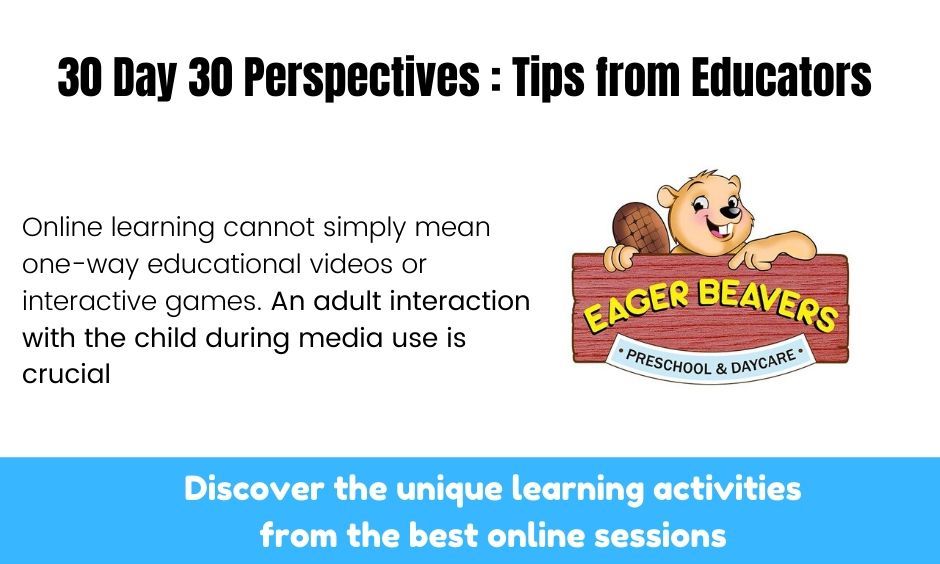The last three months have witnessed a global paradigm shift in lifestyle, human ideals and interpersonal relations. As a result of Covid lockdown, nearly 90% of student population across the world has been cut off from school. As Covid numbers in India continue to rise unrelentingly, the foreseeable future indicates delay in reopening of preschools until later part of the year. In this extraordinary situation, the internet is a critical tool for children’s access to learning, play, entertainment and social interaction.
The education sector is currently undergoing a revolutionary digital transformation. However this does raise concerns for parents about screen time. For pre-school children it raises fundamental questions – the efficacy of online learning on unripe minds, addiction, level of mental and physical stimulation – all valid concerns! However, parents need to acknowledge that online interaction is the only recourse that connects us to the world and facilitates a certain sense of normalcy. Therefore, bending screen time rules has become an inevitable reality!
Redefining the Concept of Screen Time – Quantity Vs Quality
The screen time debate precedes the Covid crisis. Media researchers have been long arguing that content and safety have more impact on children’s well-being than measuring screen time in minutes alone. A child sharing stories with grandparents over Face Time vis-a-vis watching Youtube videos or playing Candy Crush have vastly different impact. In 2019, the Oxford Internet Institute, Oxford University suggested through a study involving 35,000 children that about one to two hours of daily screen time can benefit children to some extent and could contribute to their social functioning. Professor Andrew Przybylski, Director of Research at the Oxford Internet Institute, surmised based on these findings that a blanket ban on screen time without evaluating the content is fallacious.
Moreover, one must make the distinction between passive screen time and interactive usage. A three year old living in Canada playing ‘tea party’ with her grandmother in India over Face Time, learning how to pour tea from a teapot, offering it to her grandmother is developing communication skills and her imagination while enjoying quality time with her grandmother. This is a strong example of positive screen time.
Responsible Digital Usage
Digital devices are becoming increasingly organic to modern childhood. Pre-schoolers are no exception to this. Rather than restricting their access, it would beneficial to teach children to learn about healthy digital use and citizenship. Parents can achieve this by balancing screen access with physical activity, unstructured play, family interaction and monitoring content. Most importantly, have a dialogue with children – there is nothing wrong in explaining to them that these are unusual times in which the rules are a little different.
Parents – the New Learning Partners
Pre-schoolers have immature memory and attentional skills that make it difficult for them to learn from traditional digital media and transferring that knowledge to their 3-dimensional world. Even 15-month olds can learn words through live-chatting with a responsive adult. Teachers and parents are key to facilitating children’s learning from digital media. Therefore, online learning cannot simply mean one-way educational videos or interactive games. An adult interaction with the child during media use is crucial; apart from online teachers, parental presence is equally important to reinforce what they see on screen.
Preschool is all about relationships and sharing learning. It is essential for a child’s development and well-being to keep these relationships thriving. If done right, online learning can provide this while keeping them safe. It is time we measure screen time in units of what our child learned today not just in minutes!
By Bilwa Kulkarni-Poddar. Head, Programme Development, Beavers Eduventure Pvt. Ltd. (Eager Beavers Preschool & Daycare AND Little Red Bus Home Preschool)

